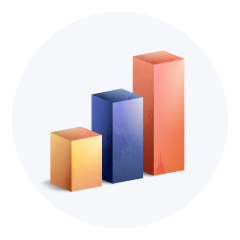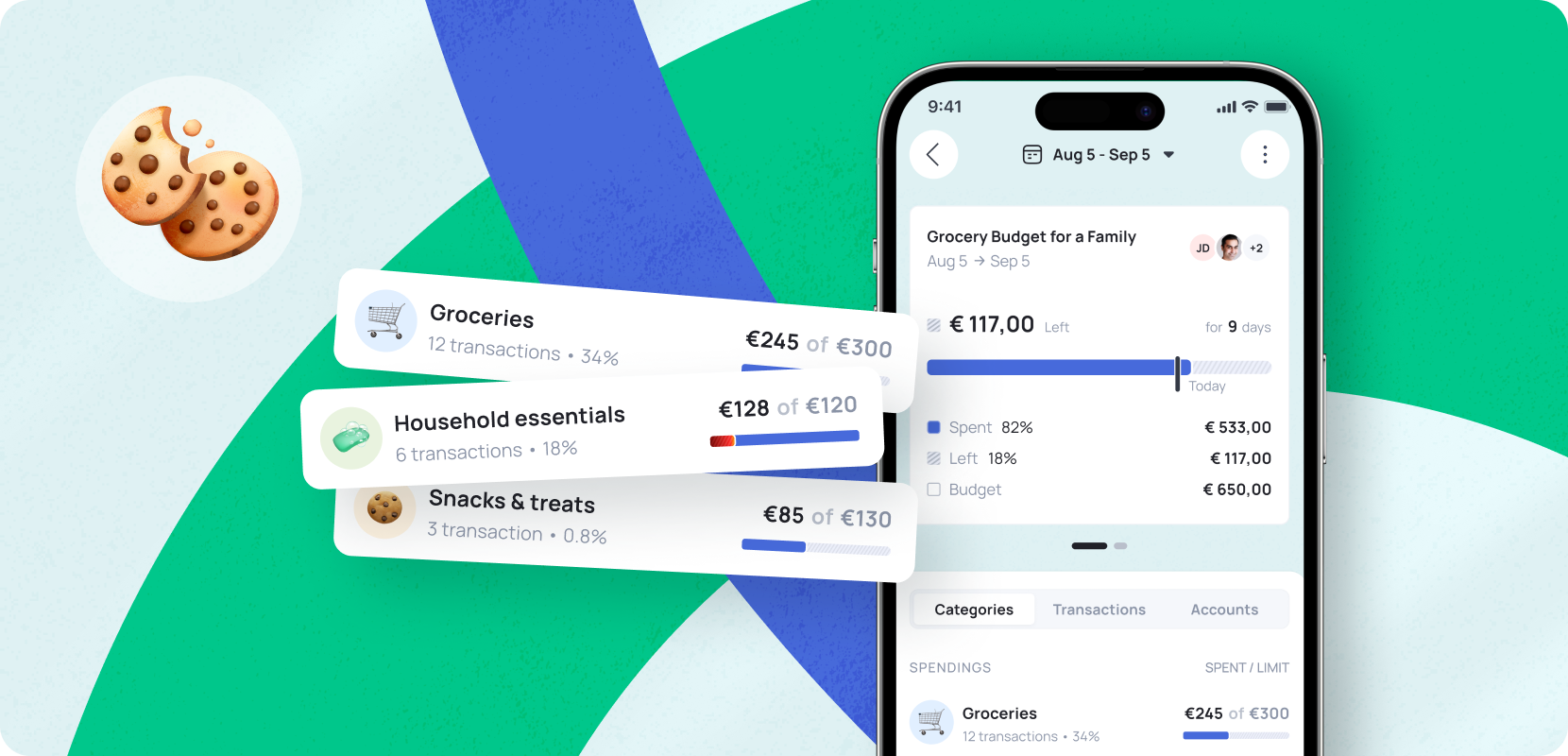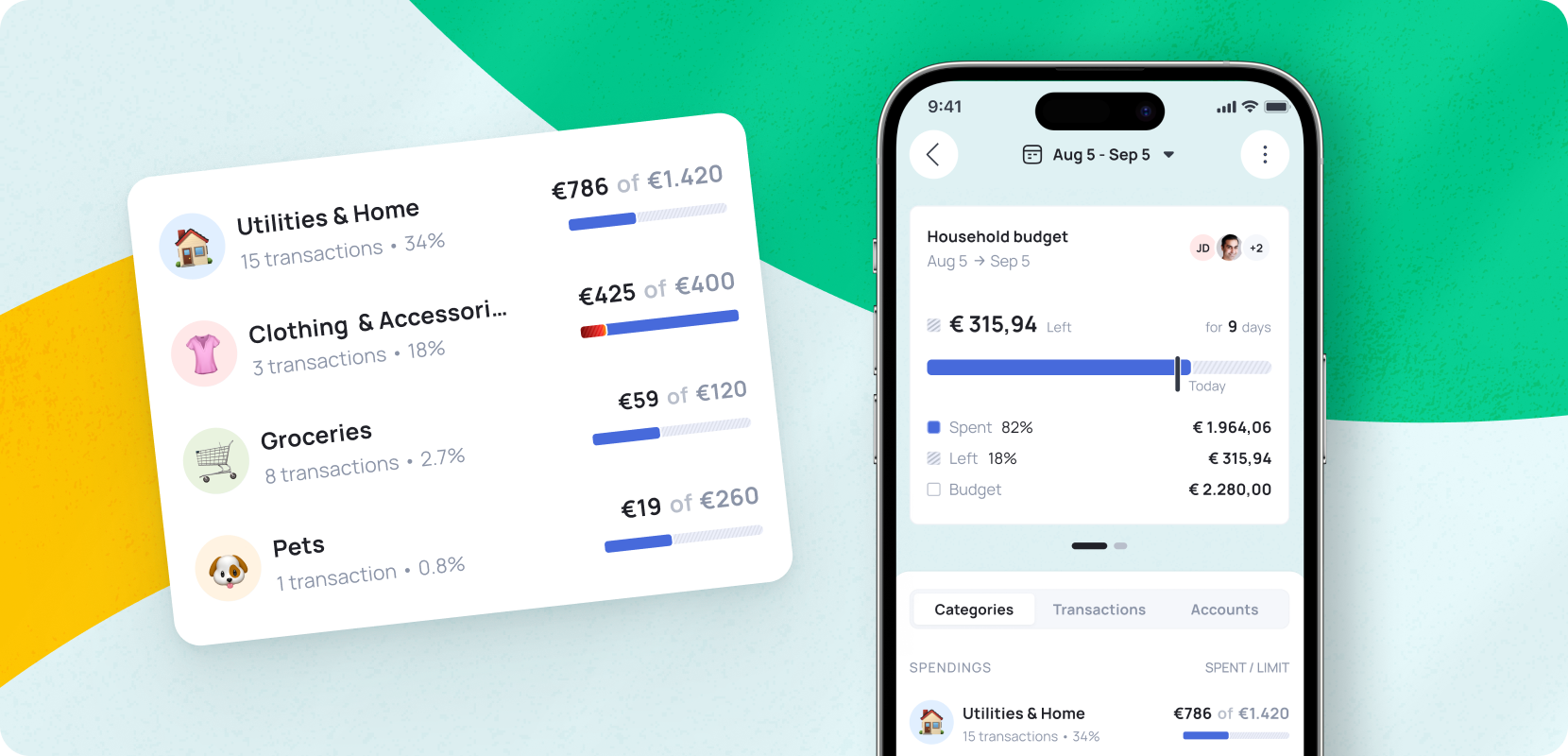What is saving? 💰
Saving means setting aside money so you can use it later for big purchases or unexpected expenses. It's a safe way to keep your money: you can't really lose it (unless you have more than 100,000 euros and the bank goes bankrupt). Your wealth grows slowly through the interest you earn from the bank.
There are different ways to save money:
- Regular savings account
You put money into a separate savings account. You can access that money whenever you want. You receive interest on the balance (so you make a little money with your money).
- Deposit account
With this type of savings, you lock in an amount of money for a certain period. You can’t access it in the meantime. In return, you receive a higher interest rate than with a regular savings account.
.png)
What is investing? 📈
Investing means putting your money into things like bonds or stocks. The goal is to make more money with your money. There are many ways to invest, with some being riskier than others. So, it’s essential to do your research and decide in advance how much risk you’re willing to take.
Bonds 🏢
One of the safest ways to invest is through bonds. These are loans you give to a company, and after a certain period, you get your loaned amount back. In the meantime, you receive interest payments. The only risk is if the company goes bankrupt and can’t repay the loan.
You can also choose government bonds. Here, you lend money to the government. This is even safer, as the chances of a government going bankrupt are extremely low.
Stocks 📊
When you buy stocks, you become (in a small part) an owner of a company. Depending on the company's performance, you either make or lose money. You can invest in companies with stable stock prices. Usually, this is a long-term investment, where you mainly earn money through dividends (a share of the profits).
Another, more risky strategy, is to buy stocks in (young) companies that you expect to increase in value. When you sell the stocks at a higher price than you bought them, you make a profit. You can buy individual stocks, but there are also investment funds and ETFs that contain a mix of stocks (and sometimes bonds) to spread the risk.
Saving vs. Investing: the pros and cons

To give you a better overview, we've listed some saving and investment options based on their risks:
- Traditional savings account. Very safe with a guaranteed, low interest rate.
- Deposit account. A savings form where money is locked for a specific period at a fixed interest rate.
- Government bonds. Loans to the government, are considered safe because the chance of a government not repaying is minimal.
- Corporate bonds. Loans to companies that are a bit riskier than government bonds, depending on the company.
- Investment funds. A mix of various stocks and bonds, reducing the risk (risks vary by fund).
- Stocks. Investing in company shares can be lucrative but also risky. Prices can rise and fall sharply.
- Cryptocurrency. Returns can be very high or very low. The value of cryptocurrencies is highly unpredictable.
Grassfeld: Overview of your finances
Want to keep an overview of your financial situation, so you know how much you can save or invest each month? Grassfeld helps you stay in control of your finances. In the app, you can set savings goals and budget. We also categorize your expenses so you know exactly where your money goes. Download Grassfeld now in your app store!
























